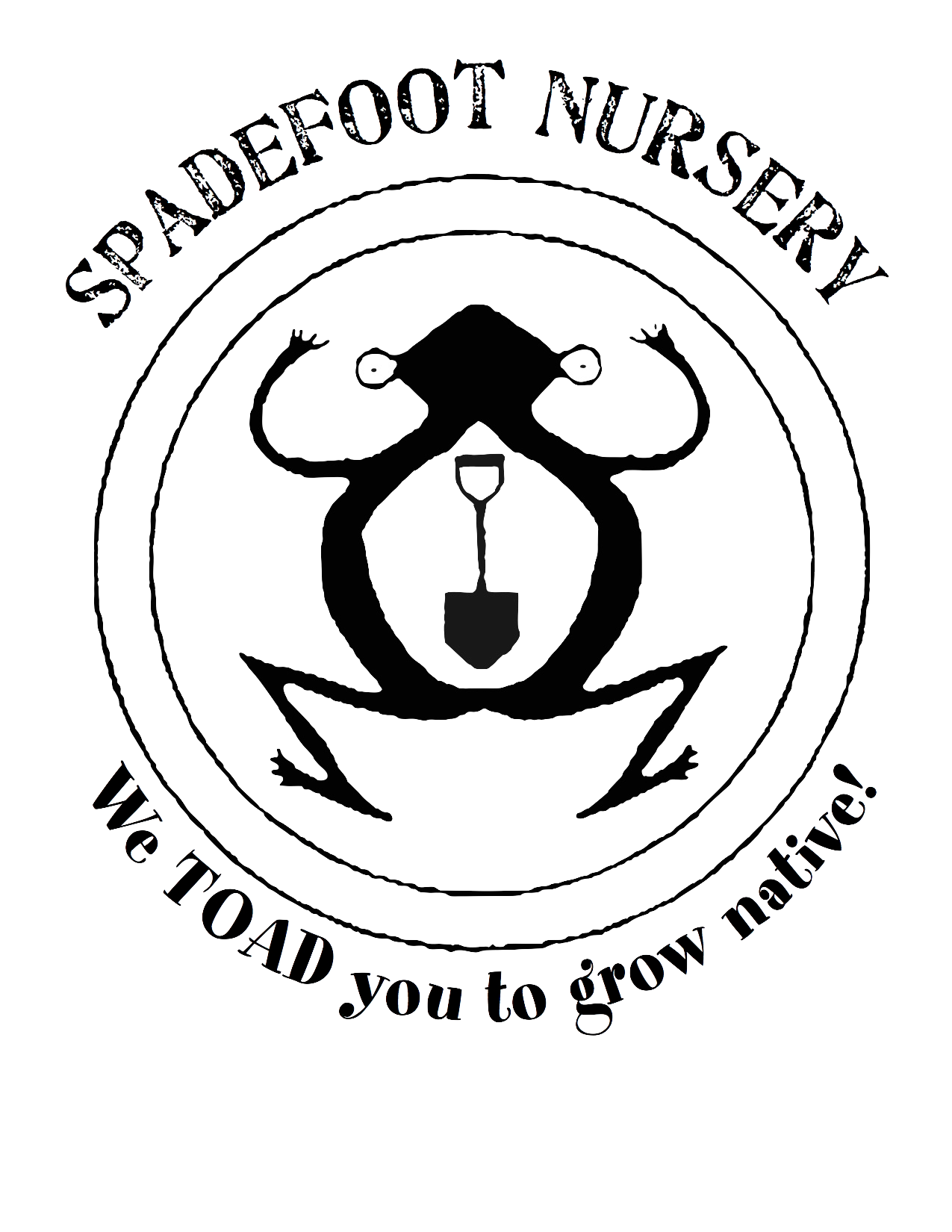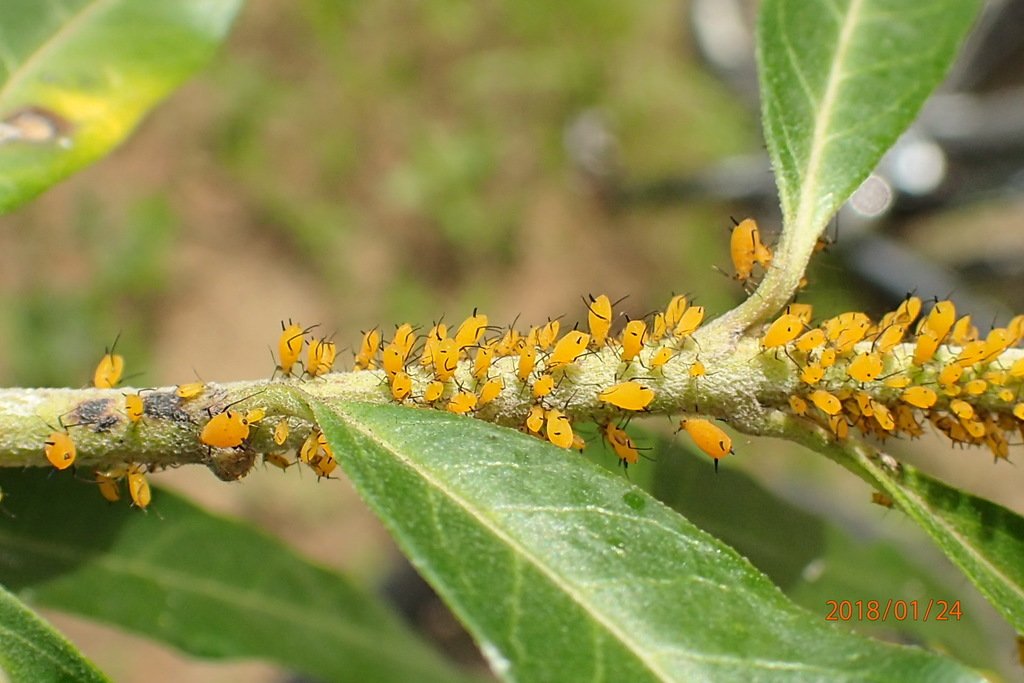The Genus Gomphocarpus
Hairy Balls
Family: Apocynaceae
There are 20 accepted species of Gomphocarpus, formerly placed in the genus Asclepias, milkweeds.
These plants are not native to our region, but are used by our native fauna for nectar and as larval hosts, including monarch and queen butterflies, and tussock moths. Numerous pollinators visit the flowers. Hummingbirds use the seed floof for nest building.
The two species we grow are very similar, and sometimes they hybridize. These are shrubby, tropical perennials that reach 4-6’ tall. Both plants have similar, typical milkweed flowers that are off-white. Both plants have inflated follicles (seed pods) that contain seeds and floof (which helps them disperse their seed via the wind).
Hairy Balls plant (Gomphocarpus physocarpus) has rounded follicles
Furry Balls plant (Gomphocarpus fruticosus) has pointy and slightly curved follicles that taper to a short, curved beak.
Photo of Gomphocarpus physocarpus by Andrew Gillespie, iNaturalist
Both plants can be grown in full to part sun, with moderate water when established. These plants are frost tender, but come back from the roots from as low as the teens °F. Plants reseed in the landscape.
widely used in traditional medicine in South Africa. The roots are used to treat stomach ache. Leaves are dried and ground into a powder that is taken as snuff for headaches. The milky latex is used to treat warts. Seeds are blown away from the pods as a charm to placate the ancestors. The stems are used for fibre.
The inflated fruits last well in the vase, when dried, and can be used in fresh and dried floral arrangements.
The genus Gomphocarpus is derived from the Greek gomphos meaning a club, and karpos, fruit. The species name physocarpa is derived from the Greek physa meaning bladder and karpos, fruit, referring to the inflated, bladder-like fruits. The species epithet "fruticosa" is derived from the Latin word for bushy ("fruticosus"), referring to the species' growth habit.
Both plants are from southern Africa. They do not seem to naturalize outside of cultivation in our region.
Gomphocarpus fruticosus with its ovoid, inflated follicle--more pointy and less round than G. physocarpus. Photo by lemurtaquin on iNaturalist
Flower details of Gomphocarpus fruticosus. Photo by Riana Fourie, iNaturalist
Growing nature of G. fruticosus, photo by ribbokspoort on iNaturalist
Flower detail of G. physocarpus, photo by Wynand Uys, iNaturalist
Milkweed aphids on G. physocarpus, photo by Peter Warren, iNaturalist
Typical native habitat in South Africa, photo by Dave Richardson, iNaturalist
Seed and floof of G. physocarpus, photo by Paul Taylor, iNaturalist








